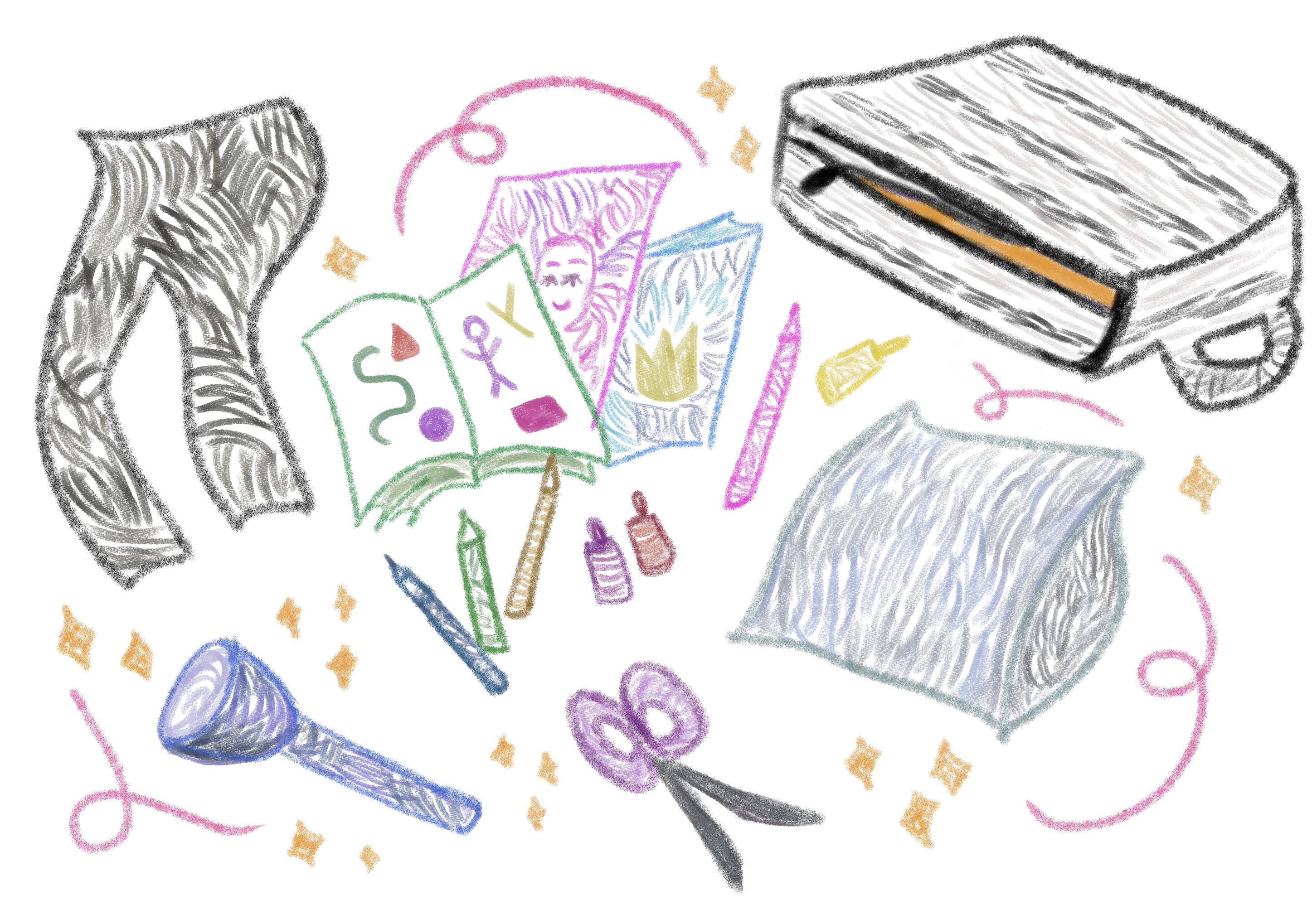CW: transphobia, biphobia, homophobia
1: I learnt at six
I never quite understood the reaction I got when, in year one, I said: “I want to be a girl so I can wear dresses.” The other children around me were confused. I heard “why would you want that?” and “that’s weird.” Apparently, because I was a boy, I was not meant to want that. I never brought it up again.
This is the first experience I remember of the rigidness of masculinity. At the young age of six, I learnt that boys wanting to wear dresses was not normal. Since then, I still come across the same idea in my interactions with people: that masculinity is so rigid that dresses or ‘feminine clothing’ is not an option for guys.
2: One of the boys
It took me a long time in high school to overcome the idea that I had to be ‘one of the boys’. Throughout middle school I attempted to fit in with ‘the group’ – however, I always felt like an outsider. They were the rowdy, backchat-the-teacher type boys, full of homophobic and sexist jokes that I never felt comfortable with. I, naturally, was a quiet, sit-at-the-front type boy. But to fit in with ‘the group’ required a rigid and toxic version of masculinity; I adopted this version of masculinity and went along with it.
I got into fights. I became quite an angry person and dealt with anger issues throughout middle school. At the same time, I felt alienated in this persona. I wasn’t someone I liked being.
It wasn’t until year 11 and 12 that I realised that I didn’t have to play this role. I was more than happy sitting, studying and tuning out of physics class, where the other boys, at the encouragement of our teacher, constantly made sexist jokes. This was in no way perfect, but at least I made peace with the fact that form of masculinity didn’t suit me.
3: Coming out I – Bisexual
Masculinity and queerness often intersect in ways that are far from positive. I came out as a queer male in a regional high school environment, which considerably impacted the reactions of those around me. It was far from easy to prepare to come out as queer when half of the conversations had around me on a daily basis involved turning queer people – usually queer men or trans women – into the butt of queerphobic jokes. Because apparently, taking it up the butt isn’t manly. But, I ask, what’s manlier than two men together?
Queerness was also something that just wasn’t discussed. The only friends I had at the time were non-queer (at least not out) individuals, who found the idea weird and didn’t know how to talk about it. In light of the jokes that were made at the expense of queer men, I felt like I had no one to turn to.
4: Coming out II – Transgender
I came out as transfeminine at the end of my first year at university. This announcement was met with shock and confusion, largely from my male friends. People who I had not expressly come out to questioned why I was wearing dresses and skirts as I started to present more femininely. I felt the rigidity of masculinity trying to rear its ugly head again.
Curious, that an article of clothing – a simple dress – threatens masculinity so much. I continued to notice the way that there seemed to be a general refusal by guys to push the boundaries of gender roles. For instance, for a college drag night the guys were fine wearing dresses in the comfort of the college walls where the reasons for doing so were known, but when it came to being in places where the reasoning was questioned… that wasn’t going to happen.
5: Transamory – Dating as a trans person
While internalised transphobia plays a part in my fears about dating as a transfeminine person, I also find all too often that these fears are not unfounded. It is not uncommon for me to be ghosted for the (non-compulsory) disclosure that I am trans. And, when it is men I am communicating with, often this message comes from the view that dating or sleeping with a transfeminine person would make them gay. That is not to say that similar attitudes don’t come from women as well. (I realise this is a very binary perspective, but at the same, I’ve never received this attitude from a non-binary person.)
There are, quite evidently, problematics in this. First and foremost, the disrespect for my gender identity, as if being assigned male at birth negates the fact that I am feminine and that they were attracted to me previously. Secondly, the fact that men seem so uncomfortable with the very suggestion that they may be queer.
The first is the result of complete disrespect. And to be honest, fuck you too. Why does it matter what genitalia I have, or am perceived to have based off the declaration that I am trans?
The second stems from a brand of masculinity which treats queer men – as well as men who are effeminate in any way – as inferior. I honestly don’t know if I will ever understand what is so damning about being even perceived as queer.





